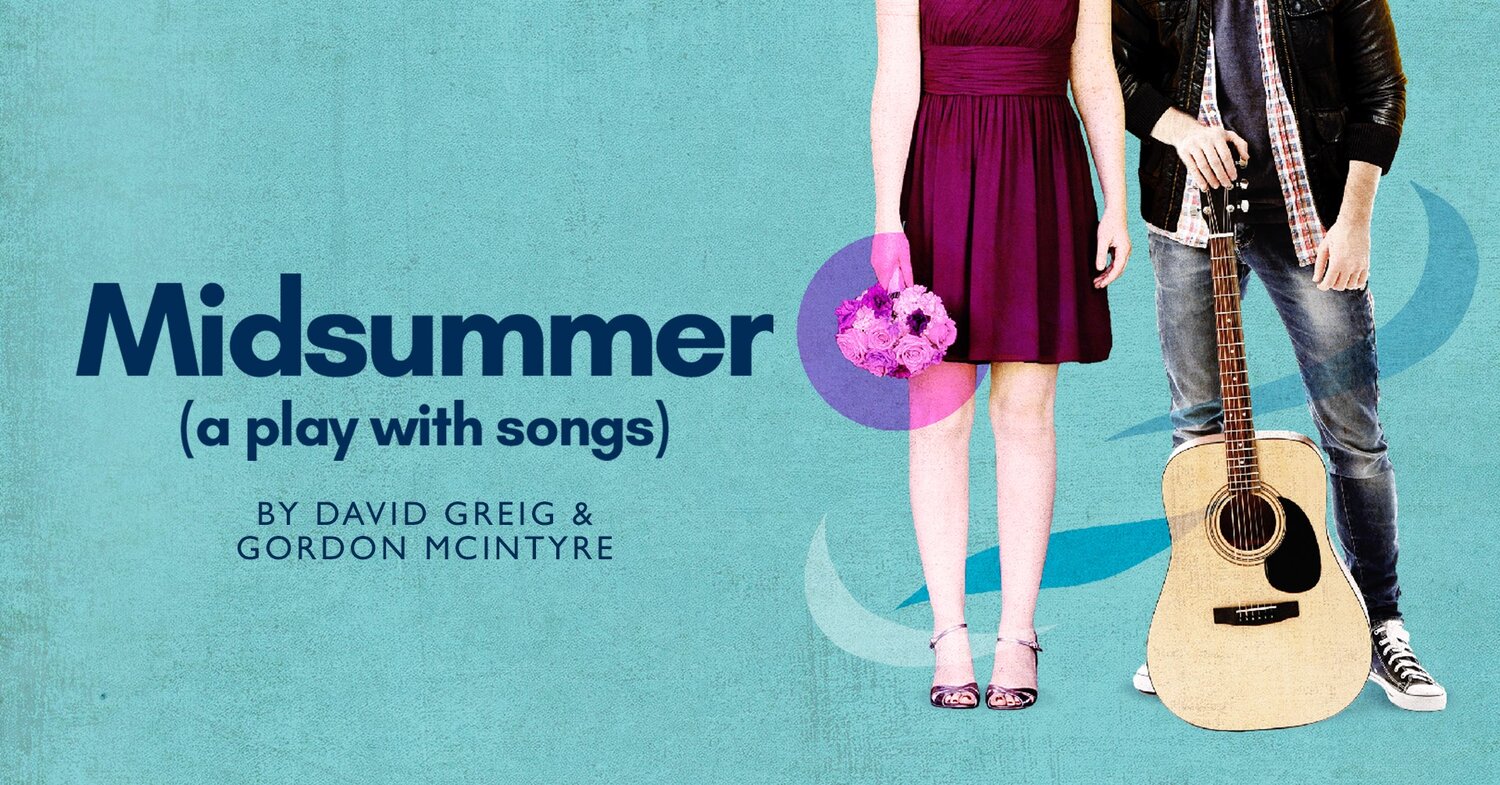Thousand Islands Playhouse presents: Midsummer (a play with songs)

Upon entering the Firehall theatre, there was a sense of familiarity. The stage was dressed as a pub, complete with TV screens playing soccer games (or, since Midsummer is set in Edinburgh, “football” games) and the sound of chatter and dishes that blended smoothly into the sound of the audience talking amongst themselves. In his director’s note, Brett Christopher refers to the universality of the story that is about to unfold: “Edinburgh is Gananoque, Bob and Helena are us.”
“In his director’s note, Brett Christopher refers to the universality of the story that is about to unfold: “Edinburgh is Gananoque, Bob and Helena are us.””
Midsummer (a play with songs) is a two-hander show by David Greig and Gordon McIntyre that tells the unlikely story of two strangers, Bob (Brent Buchanan) and Helena (Alison Deon), who, after a drunken one night stand, end up going on a series of adventures in reaction to the feeling that their destinies have been sealed at the age of 35. Buchanan and Deon expertly depict a wide variety of characters, hitting their stride in both the comedic moments—a highlight is Deon’s portrayal of Bob’s morning wood—and in the quiet, time-stopping moments.
Greig and McIntyre’s Midsummer does not borrow as heavily from Shakespeare’s A Midsummer Night’s Dream as one may expect, although the themes and tone are still in tact. Both shows explore characters that are living very normal lives, but, for one short night—in fact, the shortest night of the year—allow themselves to be uninhibited and free from expectations before returning to normal society. Then, there’s the question of fate. Are Bob and Helena really in control of their own lives? One section of the script explores the research finding that humans don’t choose to do things, but rather, do things, and then justify the choice. Perhaps, like in Shakespeare’s play, the characters are being manipulated by something outside the human realm.

I’m not always the biggest fan of theatre made to be “universal” or “relatable,” simply because I think the human experience is so varied and unique that it can’t be bottled up into one story. However, in the smaller facets of Midsummer you can easily find elements of yourself. After all, its namesake, A Midsummer Night’s Dream has been produced and adapted for centuries all over the world. Despite the fact that I’ve never been 35, I connected to Bob and Helena’s fear that, by their age, they weren’t going to be able to be or do anything that they hadn’t already done—for example, Helena knows by now that she’ll never be a gymnast. As I walked out of the playhouse and was hit by a wall of the hot summer air, I appreciated the experience that TIP’s Midsummer offered—a chance to connect with other human beings on our small, unglamourous fears, and to celebrate the ways in which we deal with them.
Midsummer (a play with songs) is in the Firehall Theatre until September 2nd.
